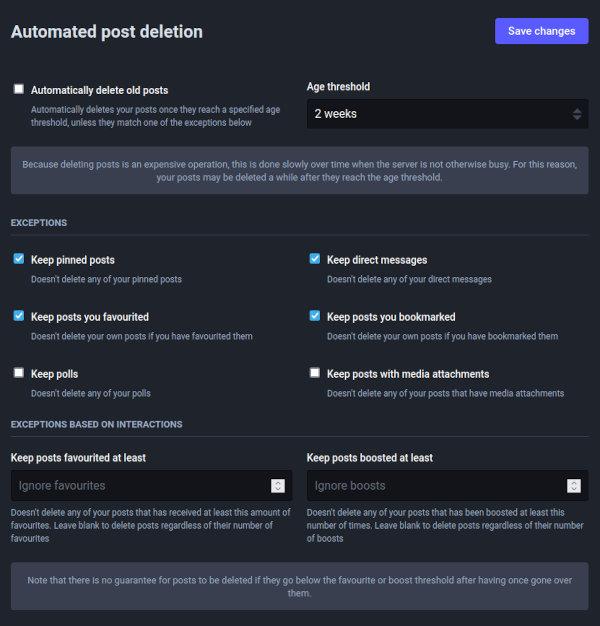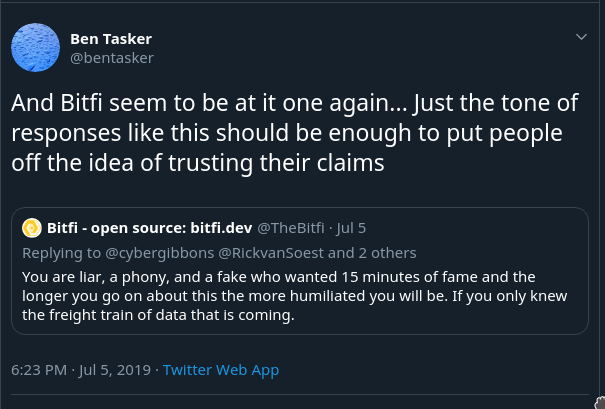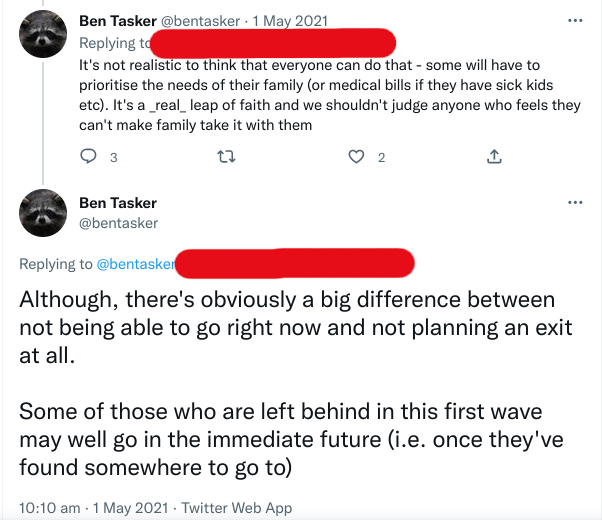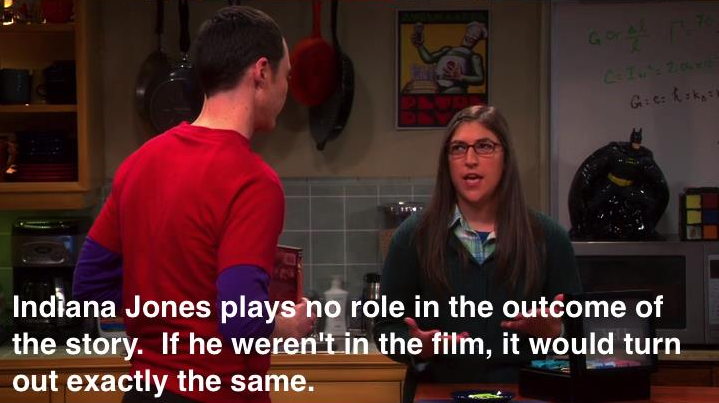Deciding Whether to Enable Automatic Post Deletion on Mastodon
One of the many configuration options available to a Mastodon user is Automated Post Deletion: having the server automatically delete toots once they're older than a defined threshold.
This isn't a feature that Twitter offered, users who wanted it needed to use a service like TweetDelete, so I've never really given it too much thought.
Now that it's an option, though, I've found that I'm somewhat stuck on the fence deciding whether to enable it or not and thought it might be helpful if I reasoned it out in writing.
This post, essentially, is me having an argument with myself in order to assess the pros and cons of using Mastodon's automatic toot deletion functionality on my account.
The Options
The first thing to be clear about, is that this isn't actually a binary choice: the functionality isn't simply on or off, because there are a range of knobs which can be tweaked

Keeping things for posterity
One of the biggest arguments against enabling the functionality is that I clearly care about retaining this sort of thing.
When writing about my twitter archive recently, I wrote
It's not that these old posts necessarily contribute anything to the wider world (in fact, the writing style in some of them is atroscious), but they are part of the journey that I've been on. It turns out that I like to preserve that stuff (I wish I'd cared about it more when I was younger: there's definitely content that's irrecoverable now).
There are posts/essays that I remember writing and even remember being quite pleased with, but no longer have a copy of (which might be a good thing: they might actually be crap). I used to use, amongst other things, a writing prompt service called Helium (Wayback machine) which provided users with a title to write for, giving a wide range of topics to explore (and, originally, some ad revenue, I left when they retroactively changed the rules on that).
Toots and tweets aren't on quite the same scale, but there is a non-zero probability that at some point in the future I'll regret having enabled auto-delete.
My Twitter Archive
The fact that I've been able to create an archive of my Tweets is both cool and terrible.
On the one hand, it provides a near daily insight into how I was feeling and what I was working on, over the course of more than a decade.
On the other hand, it provides a near daily insight into how I was feeling, cringe.
Unsurprisingly, it's also somewhat laden with profanities
There's another problem though: Because the archive only contains my tweets (and no media), some of the tweets inevitably lack important context (what I was replying to, supporting images etc). Could that lack of context one day be weaponised to try and harm me?
Concerns about someone being able to misuse or twist historic posts would apply just as much to Mastodon as it does to my Twitter archive.
Now that I've created it, it's fairly unlikely that I'd delete the archive of tweets. But, it doesn't automatically follow that I should also create an archive of toots which would suffer from the same issues.
It's true that someone who was so inclined could collect and archive my toots over time, but the time and effort that would require is not nearly the same as if I were providing easy and extended access to a ready built archive.
Sentimentality or Hoarding?
So far, the arguments in favour are built around a sense of sentimentality. This does make some sense, because the Twitter archive contains a wide range of interactions.
There are conversations that I remember happily, curiously, even including the Bitfi stuff

I guess the happiness stems from just how thoroughly disproven some of their claims were.
There's also stuff that I'm still slightly salty about, like the time I had my head ripped off for suggesting that it was wrong to assume those who hadn't immediately walked out of Basecamp support racism

Although not well received by the person I was replying to (resulting in some fairly abusive messages being sent my way), it later proved to be an accurate assessment: stories emerged of employees who couldn't leave because of issues with health, visas and/or other family matters. Unfortunately, not everyone has the privilege of being able to immediately walk from a job that they disagree with.
Some tweets, I enjoy simply because of how much others seemed to appreciate them at the time

So, it's fair to say that there are a wide range of emotions wrapped up and represented in that archive, and it's possible that I might perhaps like to reflect on them at some point.
But... it's only really sentimentality if I'm actually likely to look in the archive on occasion.
I might occasionally dig out a tweet to link back to (or screenshot), but it seem extremely unlikely that I'll ever sit and read through pages of tweets to reminisce.
If they're not going to be looked at, is it sentimentality, or just a mild case of Data Hoarding? It feels like it might be more like the latter.
A Self-Reinforcing Mechanism
I've included screenshots of tweets above, and they are fairly useful in helping describe some of the content within the tweet-archive, so maybe an argument could be made that having the archive provides value.
But, it's something of a circular argument.
If I didn't have an archive of my tweets, then I wouldn't need the tweets to help explain why having an archive is useful, so the lack of that archive wouldn't actually change anything

The tweets are, for the most part, things that it's interesting to include, rather than things which are likely to be absolutely essential to accompanying content. Where that need does exist, it's adequately served by screenshots.
Effect on conversation
Conversation works best when it's ephemeral: during a discussion we rarely bother clarifying context, because that context is either already in the conversation, or is what led to the conversation. If the same conversation is re-read later, the lack of supporting context can confuse or entirely change meanings and tone.
Whilst I don't think that many people consciously change their conversation style, there's probably some truth in the idea that subconsciously we tend to be aware that we're talking in a public space, and that conversations will persist to be commented on by others later.
Knowing that posts will be deleted might not change that, but it also might.
In either case, it's hard to argue that there's any great loss for the majority of conversations: they simply become more like IRL conversations, existing only in the moment before receeding into memory.
Short vs Long Form
Social media lends itself best to short-form writing, the clue is even in the name: microblogging.
In the past I've used Twitter threads to explain/explore something interesting, but later come to regret it when I wanted to cross-link it in a later blog post. The choice is then to either expect users to read a thread via screenshots or linking to Twitter and accepting the risk that the content may cease to be (especially now, with a thin-skinned overgrown edgelord toddler arbitrarily banning accounts).
Knowing that toots will automagically disappear might help shift the balance when deciding whether something is "worth" adding as a blog post.
In the last few days, someone tooted about how they were going to start writing more about odd things which interested them, and try being much more of themself on their blog rather than having it simply be a technical resource. Honestly, I think that's a fantastic thing to aspire to.
My site is multi-homed onto the WWW, Tor and I2P, so there are a number of privacy-preserving routes to content here for those who need (or desire) them. Ensuring that long-form content is published on my site would help to maximise the chance of that content being useful to people living under conditions more restrictive than most of us get to enjoy.
SEO and Discoverability
Both Twitter and Mastodon include rel=nofollow in external link elements.

As a result, search engines don't follow those links and there's no particular SEO benefit to having links persist on either Twitter or Mastodon.
There is, however, some discoverability benefit to persistence.
The existence of a toot (or tweet) does help discoverability for the service's respective userbases: users searching for a hashtag can find the toot and hopefully then find the content helpful.
There are disadvantages to this too though, particularly on Twitter. There can't be many long-term Twitter users who haven't received a notification because of a reply to a years old tweet, usually replying with spam or abuse.
Although based on an extremely limited sample, I've noticed that immediately after being toot'd on Mastodon technical content sees far more human visitors than it does just after being tweeted. That's probably the result of a combination of things
- There's a significant technical userbase/audience on Mastodon
- There isn't an algorithm pushing my post down in favour of something that'll drive engagement against the social media network
- The content I was tweeting has also been fairly topical
Even if search engines disregard the links, there is a clear benefit to retaining toot'd links to my content.
However, that use-case is already largely addressed by @rssbot. It automatically toots links to my content, which persist independently of my own toots.
Viral content
I'm not, and never have been, on social media for clout.
So whilst I acknowledge that some might feel differently, if I do ever have any popular/viral content I've no real concerns about the fact that it might later be deleted: by then I'll have had my dopamine hit from seeing content being boosted.
The only real concern I'd have in this area is if I had toot'd something which others were genuinely finding useful, and was still being boosted when it became eligible for deletion.
In the unlikely event that I toot something of that much value, though, Mastodon's auto-delete tuning knobs can be used to prevent deletion: bookmarking the toot, or using the Keep posts boosted at least n times option.
This, however, is potentially something of a double-edged sword.
Although Mastodon is currently "A Nice PlaceTM", it's no stranger to problematic users.
As a result, there's a reasonably probability that long-lived content will suffer from having users reply with abuse years/months after the toot was sent (just as happens on Twitter). That possibility only really increases the more popular the content is (or the more high profile the author, again not an issue in my case, but something for others to consider).
Conclusion
Laying out the arguments does seem to suggest that the primary argument I have against automated post deletion is a somewhat misplaced form of sentimentality: the idea that at some point in the future I might regret having deleted them and want to read/search through them.
There are also some content discoverability benefits for posts linked to from toots and tweets, but that use-case is arguably already well covered by my mastobot.
The case for enabling deletion, on the other hand, feels much stronger
- It allows conversations to be ephemeral, much as they would be IRL
- An archive is only useful if the required context is available, which it often won't be (especially over the long term)
- Without that context, there's potential for abuse/misuse
- Knowing that posts are ephemeral should help discourage misusing a short-form medium to publish long-form content
- Publishing on my site ensures that content is available via various anonymous overlay networks, increasing accessibility for those who may not be able to access Mastodon
- Long-lived posts increase the attack surface available for harrassment campaigns as well as raising the likelihood of untargeted nuisance replies.
My inclination then, is to enable automatic toot deletion for my account. The default period of 2 weeks feels a bit short, so I'll probably use something like the following
- Age threshold: 1 (or 2) months
- Keep pinned posts
- Keep direct messages
- Keep posts you favourited
- Keep posts you bookmarked
- Keep posts boosted at least
ntimes
Where n is a non-zero number, though picking that number is itself likely to be a little problematic.

